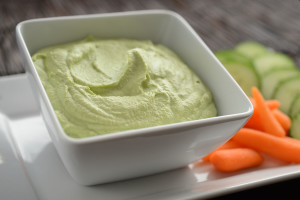Hope you had a great Memorial Day weekend! I’ve been away with the fam, which has been really nice. Today I’ve got a guest recipe post from fellow RD, Abbie Gellman, who is a wonderful culinary nutritionist.
Abbie is currently the Chief Culinary Nutritionist for Elements Behavioral Health, one of the largest networks of addiction treatment facilities nationwide, and the Chief Culinary Nutritionist for Ox Verte, a foodservice business based in Manhattan. In addition to working with a wide variety of hospitality and foodservice operators, Abbie teaches healthy cooking classes, offers private chef services, and counsels and educates patients and groups in a private practice setting.
Abbie was kind enough to share some of her thoughts about the role of nutrition in recovery.
True recovery, whether it is from substance abuse or addictive behaviors related to food, gambling, sex, or something else, is ultimately about restoring mental and physical health. Addiction wreaks havoc on the body and things such as self-care and proper diet are simply not on the radar. It is not uncommon for most of us to reach for “hyperpalatables,” sugary, salty, fatty foods, at some point; most of us are not immune to some combination.
For those in recovery, it is common to develop “cross” or “transfer” addictions to these so-called “hyperpalatables.” Evidence-based research has shown that these foods trigger the release of dopamine, or pleasure chemical, in the brain’s reward center and affect us just as strongly as substances such as drugs or alcohol. Unhealthy foods can be extremely damaging, leading to issues such as high blood pressure, type 2 diabetes, heart disease, and weight gain. In addition, weight gain often leads those in recovery to relapse, turning back to the drug of choice as a quick fix to shed extra pounds. Eating healthfully is essential to help repair damage done to the body.
Regardless of whether you are in recovery or not, good nutrition helps you feel better, improve your mood, and give you then mental and physical stamina necessary to live life to the fullest.
Abbie has written many recipes and articles for Addiction.com. This delicious, nourishing Edamame Hummus is a must-try for anyone: 
Excellent source of vitamin B1 (thiamin) from edamame. Thiamin supports maintenance of mental function. Edamame is a real star for those in recovery seeking a healthy, fiber-filled source of protein, as well as vitamin C and A, calcium and iron.
Makes 6 serving(s)
Ingredients
- 1/2 pound frozen shelled edamame (green soy beans), about 1 1/2 cups
- 1/4 cup tahini
- 1/4 cup water
- 3/4 teaspoon grated lemon zest
- 1 lemon (about 3 tablespoons), juiced
- 1 clove garlic, smashed
- 3/4 teaspoon kosher salt
- 1/2 teaspoon ground cumin
- 1/4 teaspoon ground coriander
- 3 tablespoons extra-virgin olive oil
- 1 tablespoon flat-leaf parsley, chopped
Suggested serving: Sliced cucumbers, celery, and olives
Directions
- Boil the beans in salted (use pinch of salt) water for 4 to 5 minutes, or microwave, covered, for 2 to 3 minutes.
- In a food processor, puree the edamame, tahini, water, lemon zest and juice, garlic, salt, cumin and coriander until smooth. With the motor running, slowly drizzle in 2 tablespoons of the olive oil and mix until absorbed.
- Transfer to a small bowl, stir in the parsley and drizzle with remaining oil.
- Serve with the suggested vegetables, or refrigerate, covered, up to 1 day.
Nutrition Information
- Calories: 100
- Total fat: 8g (1 g Saturated Fat)
- Protein: 3g
- Carbohydrates: 4g
- Sodium: 87mg
- Fiber: 2g
